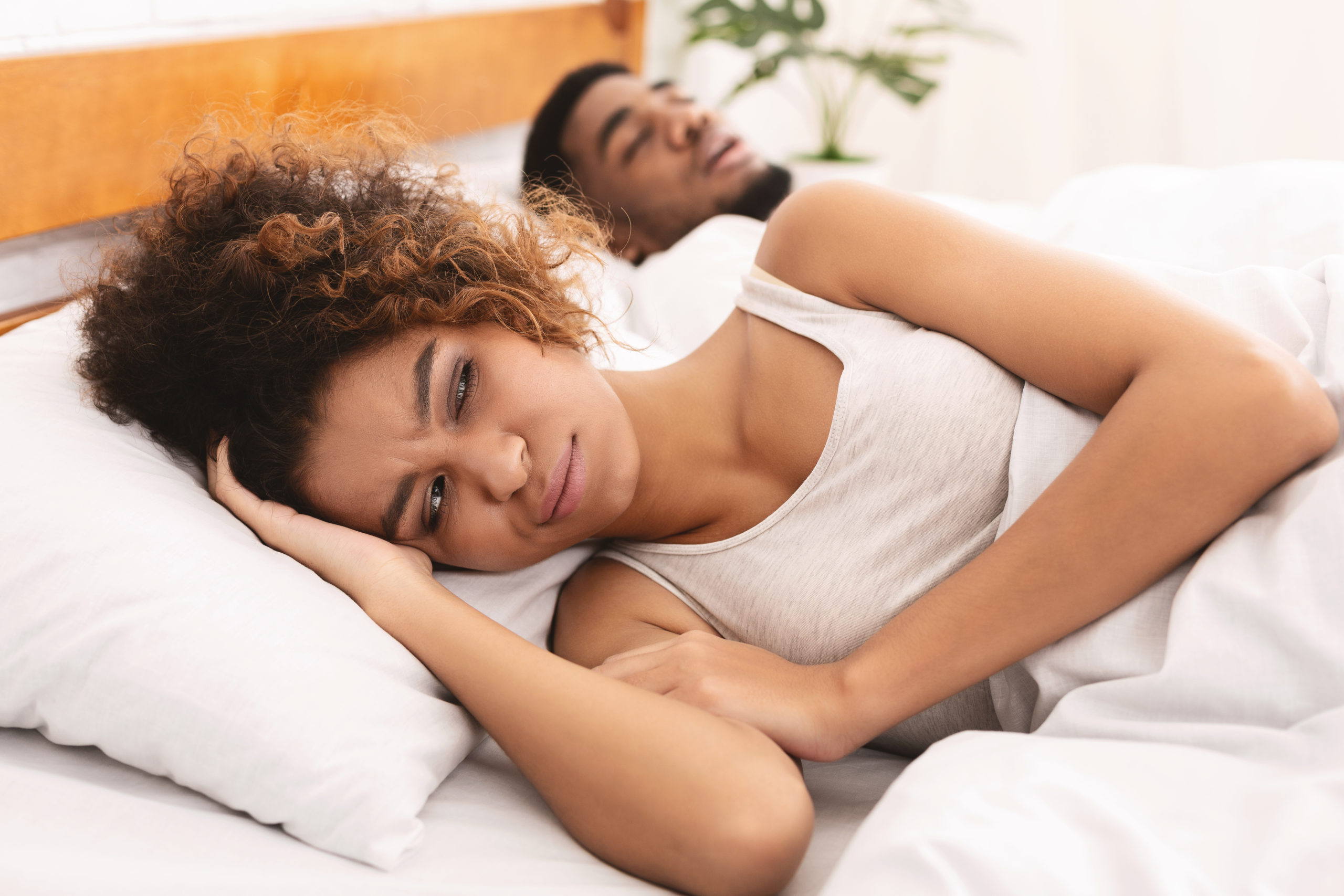Why Do We Sleep Talk?

Do you ever recall camping with friends hearing someone speaking in the middle of the night? Or perhaps your bed partner tends to have conversations with no one in the early morning hours. If this sounds familiar, you’ve likely seen firsthand the strangeness that is sleep talking. Why do we do it? And how can we reduce the occurrences?
Let’s unravel this mystery together.
What is Sleep Talking?
Sleep talking, also known as somniloquy, is a relatively common sleep arousal disorder that happens when a person talks during their sleep. Their speech may be coherent or gibberish, brief or extended, mumbled or loud, offensive or meaningless.
Sleep talking may occur during any of the sleep stages. Research shows that 20–25% of sleep talking episodes happen during REM (rapid eye movement) sleep and 75–80% during NREM (non-rapid eye movement) sleep.
The sleep talker usually shows no emotions while talking. And when they wake up, it’s usually without any memory of the sleep talking episode. They may also respond to external queries or remarks while sleep talking.
Sleep talking is more common than you’d imagine. Research shows that more than half of the population sleep talks at least once every few months. But it’s more common in children (up to 50%) than adults (around 5%). Although, one article published in the journal Frontiers for Young Minds suggests that this statistic may be because sleep taking is more likely to be observed (by their parents) in children than adults.
A 2017 study analyzing the contents of a sleep talker’s speech found that the most common word spoken by 232 participants of the study was “No.” Offensive words were more prominent among the sleepers during sleep talking than polite words. But many of the offensive comments happened during REM sleep, likely related to the content of the sleeper’s dream.
The study also found that the male participants sleep talked more and used more offensive words during sleep talking than the women. The sleep talkers also talked more in the second person and took pauses imitating real-life conversations.
Why Do We Sleep Talk?
To date, no one is yet to establish why people talk in their sleep. But one thing many studies agree on is that it may run in families. Children who sleep talk most likely have parents who used to or still sleep talk (or generally have any parasomnias, other sleep arousal disorders).
Sleep talking may be associated with other sleep disorders, including sleepwalking, sexsomnia (sleep-sex talking), REM sleep behavior disorder, sleep-related eating disorder, nocturnal seizures, obstructive sleep apnea, sleep terrors, and confusional arousals.
Sleep talking may also be a symptom of a health condition such as post-traumatic stress disorder (PTSD), epilepsy, and chronic headache. It may also occur more frequently with people with Parkinson’s disease.
Some experts also observe that since sleep talking is a sleep arousal disorder, certain external factors such as stress, illness, sleep deprivation, and alcohol may trigger it.
Potential Risks of Sleep Talking
Most times, sleep talking is usually not a cause for concern. Some experts even suggest that another reason sleep talking has gotten little attention in the medical community may be because there are no severe risks associated with it.
Nobody gets hurt by talking in their sleep. However, their bed partners may: either from the content of their talk (may be offensive) or by how loud or irritating it is.
Sleep talking can be short, extended, loud, quiet, polite, or impolite. Still, the sleep talker is never aware that they’re sleep talking and won’t remember what they did when they wake up. So, if a sleep talker interrupts your sleep, know that it was unintentional. You may also consider getting a white noise machine or any other noise drowning device to protect your ears so you can sleep peacefully and undisturbed.
When to Speak to a Physician
Most of the time, sleep talking is harmless and rarely requires treatment. But certain circumstances may require you to consult with a doctor about your case.
For example, if sleep talking starts after the age of 25 and the “content (of the sleep talking) is too violent or too emotional,” some evidence suggests that it may be a sign of a mental health condition.
A person may also consider speaking to a doctor if the sleep talking starts after a traumatic experience. Seeing a doctor is also advisable if the person experiences other sleep disorders such as obstructive sleep apnea, sleepwalking, night terrors, and REM behavior disorder, who may recommend appropriate treatment for their case.
Ideas to Reduce or Eliminate Sleep Talking Episodes
Medication for treating sleep talking is usually only recommended when it is recurrent and significantly disturbs sleep.
Other ways that may help reduce sleep talking episodes fall back to managing stress levels that may affect a good night’s rest and maintaining proper sleep hygiene.
You can manage your stress levels by prioritizing self-care activities and adopting healthy habits into your daily routine. Some of these practices include:
- Exercising
- Journaling
- Meditating
- Taking daily walks
- Maintaining proper hydration
- Limiting alcohol intake
Proper sleep hygiene involves following practices that are considered to help improve sleep quality and efficiency. Some of these habits include:
- Reducing exposure to bright lights and screen time at night
- Following a regular sleep-wake time every day
- Exercising at the early hours of the day
- Making your bedroom sleep-friendly by keeping it cool, calm, and quiet and using the space strictly for relaxation and sleep.
- Regularly getting the recommended 7 or more hours of sleep
Sleep talking is most times benign and happens to many people at least once in their lifetime. Still, consider speaking to a doctor if you observe that your sleep talking impairs your sleep quality and daytime functioning.